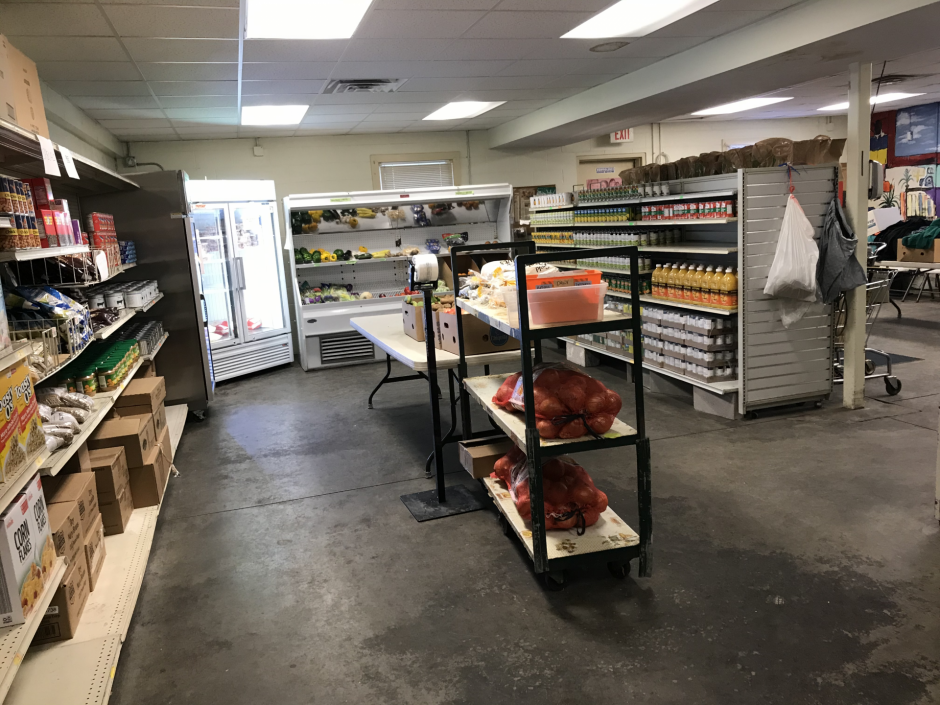SYRACUSE, N.Y. (NCC News) – Clients lined up at the St. Lucy’s Church Food Pantry on Thursday morning waiting for the clock to tick 9 a.m. Inside the pantry, volunteers finished stocking the shelves with fruit, vegetables, grains and other staple foods.
“We provide people who live in the neighborhood, regardless of income level,” said Murray Gould, director of the food pantry. “They can come once a month and we provide them three meals a day for three days.”

In 2019, Syracuse’s poverty rate was ranked the 18th highest in the nation, according to the U.S. Census Bureau. It indicated that almost a third of city residents lived below the poverty line, even though the number of poor people declined across the United States.
At St. Lucy’s, volunteers and staff members serve around 450 households a month.
“We’re not as extensive as a full grocery store, but it provides the basic food needs,” Gould said.
Last week, the White House released its proposal for the 2021 budget, which included significant cuts to the federal Supplemental Nutrition Assistance Program (SNAP), also known as food stamps. These proposals would deny food stamps to nearly 700,000 Americans and make it more difficult for millions to quality for food aid.
“As a community we’re getting very worried about that because, if there are cuts to SNAP, that could really be challenging to the people that need to step up and get everyone food,” said Megan Stuart, director of the Housing and Homeless Coalition of Central New York.
The coalition revealed last month that its most recent annual count of homelessness in Syracuse, Cayuga and Oswego counties showed a 16% decrease in homelessness. But if the proposal to cut food stamps goes into effect, this would have a detrimental effect on lower- and middle-class families that rely on the program to get purchase basic foods, said Stuart.
“Even though someone might be homeless, they’re struggling,” Gould said. “They may work three jobs, they may work four jobs, they’re struggling economically.”
Many people living in local shelters tend to work during the day and only come back at night to sleep, said Stuart.
“There are a lot of misconceptions about the homeless population— that they don’t work or that they don’t want to work”, Stuart said. “There are people who are holding down full-time jobs that just can’t afford an apartment or they find themselves in an emergency situation.”
If clients at the food pantry lose food stamps benefits, they’d rely more heavily on the church and other local organizations to access free or reduced foods, Gould said.
“These are people that don’t go to the country club,” Gould said. “These are people that need it to help feed their families.”




